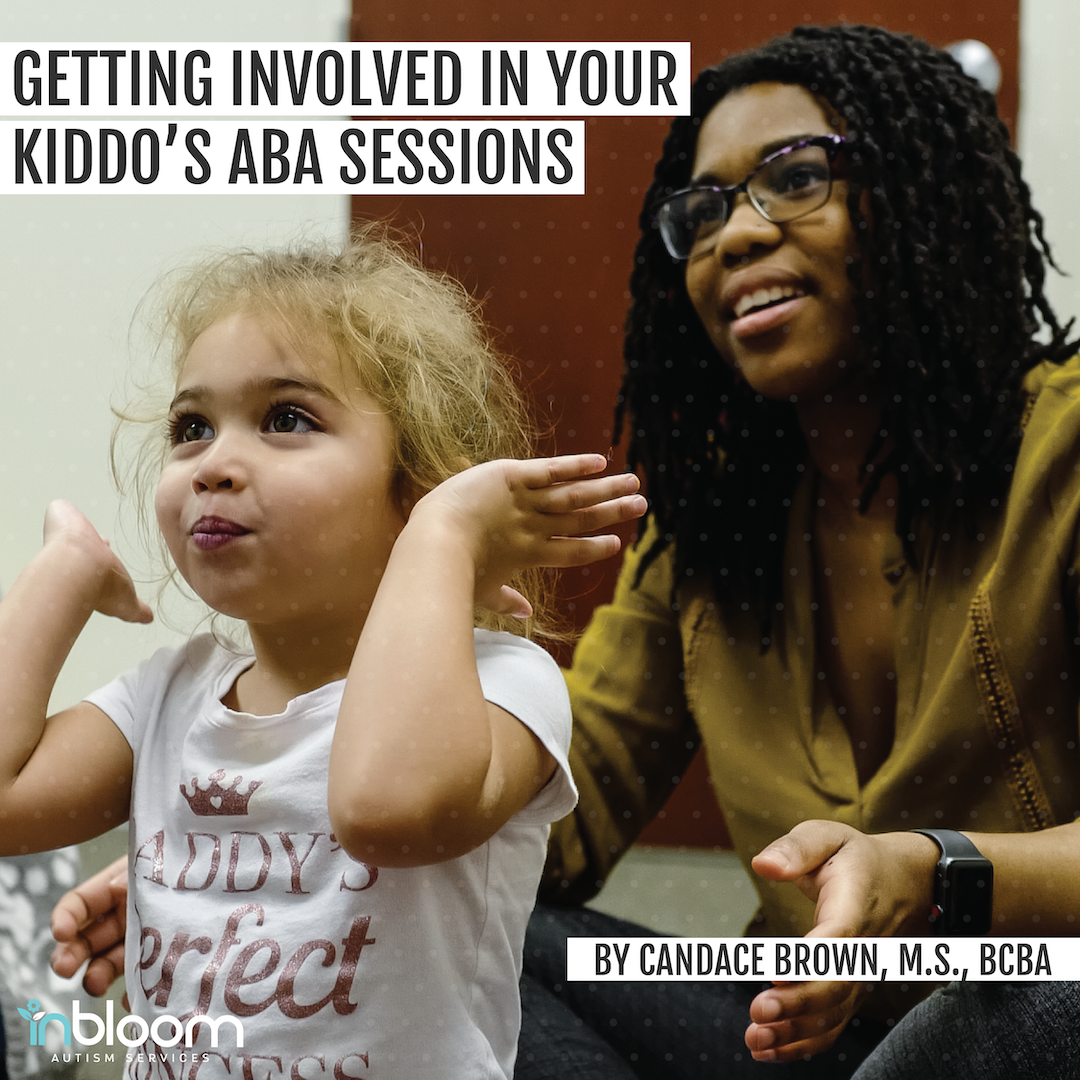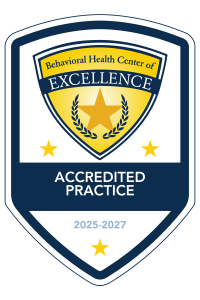How to Get Involved in Your Child’s ABA Therapy

So, your child has started receiving ABA therapy, and now you’re wondering, “How can I, as a parent, get more involved with sessions?”
Whether you’re just beginning ABA therapy or looking to deepen your engagement after some time, know this: your role matters.
Parent involvement in therapy plays a key role in your child’s success
Not sure where to begin? You’re not alone. Below, we explore practical, meaningful ways you can participate and support your child’s progress through ABA.
Why Parent Involvement is So Important in ABA
Parental involvement in ABA therapy is a core part of what makes treatment effective.
While therapists play an important role, caregivers are often the most consistent figures in a child’s life. Your participation helps ensure that what’s learned in therapy is reinforced at home, school, and in everyday settings.
Helping Generalize Skills Across Environments
Generalization refers to a child’s ability to use newly learned skills across different settings, people, and situations. For example, a child may learn to ask for help during therapy but not yet do so at home.
When parents are involved and reinforce those skills outside of sessions, generalization becomes possible. You become a bridge between the therapy environment and the real world.
Building Consistency Between Home and Therapy
One of the most significant benefits of parent involvement is the consistency it provides.
ABA therapy relies on repetition, structure, and reinforcement to achieve its goals. When parents and therapists use the same strategies, children are more likely to learn, grow, and show reduced challenging behaviors over time.
Consistency across settings helps your child thrive.
Effective Ways Parents Can Participate in ABA Sessions
If you’re wondering how parents can participate in ABA, know that it doesn’t require a background in behavior analysis.
Your natural involvement as a caregiver already makes you a vital part of the team. Here are some simple and effective ways to participate.
Ask Your BCBA Questions
Don’t be afraid to speak up. Whether you’re brand new to ABA or have been receiving services for years, it’s normal to have questions. That lengthy treatment plan your Board Certified Behavior Analyst (BCBA) gave you may feel overwhelming, but you don’t need to understand it all right away.
Reach out via email or ask for a time to talk. Your BCBA will be happy to explain goals, progress, or specific techniques so that you feel empowered and included.
Observe Sessions To Learn Techniques
If your child receives in-home ABA services, take time to observe how your Registered Behavior Technician (RBT) interacts with your child. Observing how skills are taught or how behaviors are redirected can provide you with tools to use at home.
If your child attends one of our ABA Therapy Learning Centers, we have an open-door policy and can schedule time for you to observe in person. You’ll gain a better understanding of what your child is working on and how to support their goals outside of therapy.
Practice Communication Goals at Home
Many parents tell us they want their child to “talk more,” and we do too!
A major goal in ABA is to help children communicate their wants and needs in ways that fit them. Whether your child uses words, gestures, signs, or a communication device, you can reinforce those skills at home.
Start by slowing down and giving your child time to use what they’ve learned. If they’re working on requesting, let them ask for the snack or toy instead of anticipating the need. Practicing these communication goals at home makes a big difference.
Obviously, each situation is different, but teaching your child to be able to ask for his or her wants and needs is a huge goal we want them to achieve.
Participate in Therapy Activities When Possible
If your child is comfortable, your BCBA or RBT may invite you to participate in part of the session.
For example, you might help prompt a communication request, play a structured game, or follow a behavior plan under supervision. These opportunities help build your skills, confidence, and connection with your child while reinforcing their progress.
The Value of Regular Parent Coaching Sessions
ABA parent training, also known as caregiver training or parent coaching, is a dedicated time for caregivers to meet with their BCBA, ask questions, receive feedback, and learn how to support your child’s learning outside of our sessions.
Our goal is for your child to generalize skills across environments and people, and as the parent, you are one of the most important parts of that process!
Scheduling Monthly Check-Ins With Your BCBA
We know life gets busy. Between work, school, therapies, and extracurriculars, it’s easy for caregiver coaching to get pushed aside.
Still, we encourage you to aim for at least one session per month. These check-ins help you stay updated on your child’s progress and provide an opportunity to address any questions or concerns you may have.
Reviewing Progress and Addressing Challenges
Parent coaching sessions give you a chance to review what’s working and troubleshoot what’s not.
Maybe your child is making progress in sessions but still struggles with transitions at home.
Your BCBA can help adapt the behavior plan or suggest new strategies to support your routines and goals.
Learning Behavior Strategies for Home Use
Caregiver involvement in ABA therapy goes beyond observation. It’s involves learning how to apply behavioral principles in your home environment.
From managing meltdowns to establishing daily routines, parent training equips you with the skills to confidently support your child in various situations.
Scheduling Involvement Into Session Time
Sometimes, the best way to get involved is to plan for it intentionally. Talk to your BCBA about how to incorporate your presence into session schedules in a way that works for you and your child.
In-Center Opportunities for Parent Participation
If your child attends a center-based program, consider arriving 15 minutes early to observe part of the session. You may even be able to take over and practice implementing a goal with your child. Your BCBA can guide you and provide real-time coaching, helping you feel more confident and connected to the treatment process.
In-Home ABA Involvement Options
In-home services offer a natural opportunity to observe and participate in daily routines. You might model how to play cooperatively, guide your child in requesting a snack, or work with the RBT to reinforce appropriate behavior.
Even a few minutes a day can have a lasting impact.
Building Confidence by Practicing Skills Together
Participation doesn’t have to be perfect. It’s about building confidence, learning through experience, and being part of the journey.
By practicing ABA strategies during or after sessions, you become an active part of your child’s support system, which helps build trust and success on both sides.
Open Communication With Your ABA Team
Open communication with your BCBA and RBT team is the foundation of effective ABA therapy. Your insight, feedback, and partnership are not only welcomed, they’re essential.
Customizing Involvement to Fit Your Family’s Needs
Not every family has the same schedule, capacity, or comfort level. That’s okay. Your ABA team will work with you to determine how to get involved in a way that suits your lifestyle, whether it’s weekly coaching or occasional observations, your input matters.
Keeping the Focus on Long-Term Progress and Independence
Our ultimate goal is to help your child gain independence and achieve meaningful progress in therapy and beyond.
By being involved now, you’re developing the skills to support them long after formal services end. Together, we’re laying the foundation for a lifetime of growth.
Supporting Your Child Starts with You
Your involvement in your child’s ABA therapy is powerful.
Whether you’re asking questions, observing sessions, or practicing skills at home during playtime, every moment you invest makes a difference. As caregivers, you bring insight, consistency, and love that no therapist can replicate.
At InBloom, we believe that motivation, collaboration, and effort are at the heart of every child’s progress. When we work together, parents, therapists, and kids create lasting, meaningful change. No matter where you’re starting from, we’re here to support you.
Are you ready to get more involved or have questions about what that could look like for your family? Contact us today to connect with our team and explore how we can support your child’s journey together.



